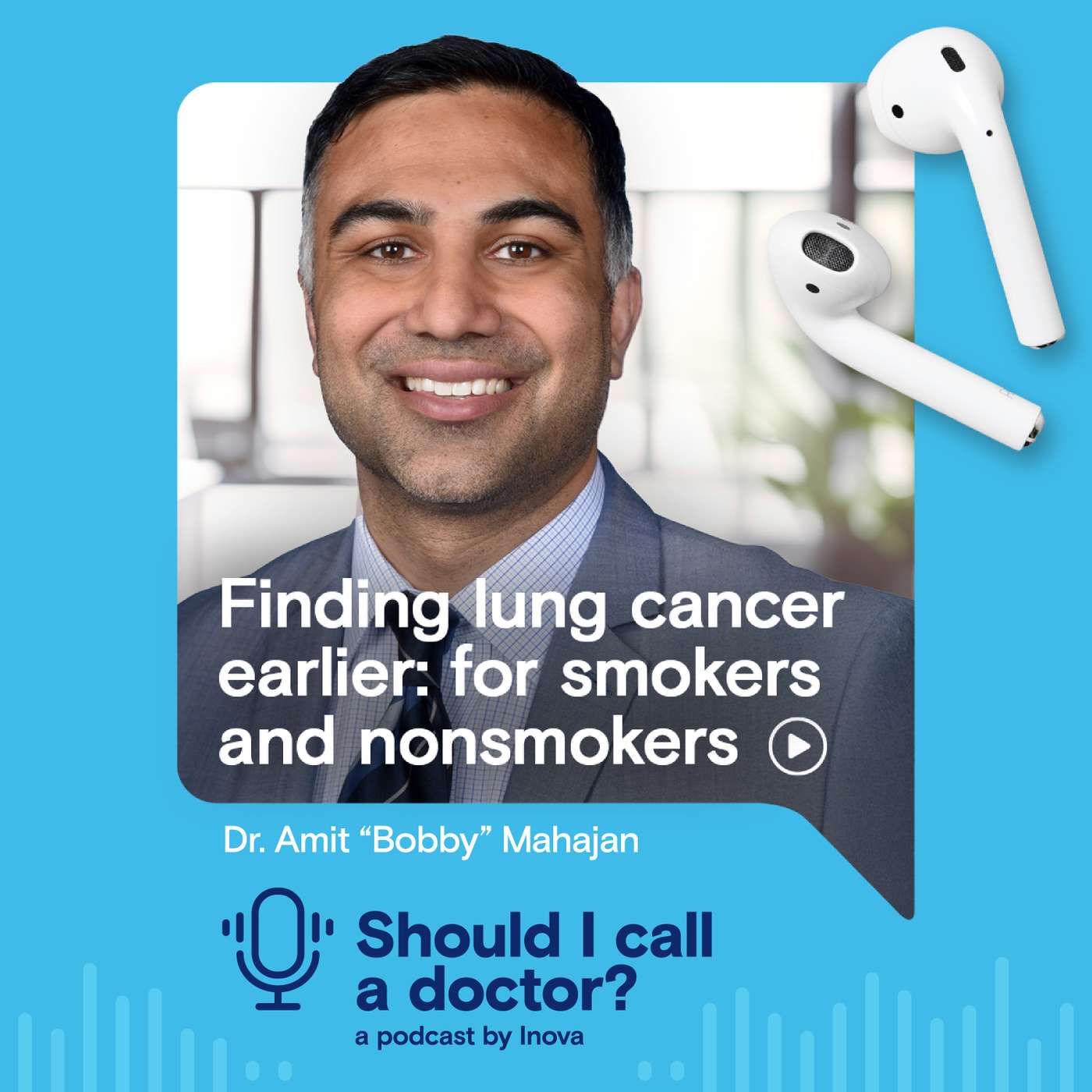#12: Finding lung cancer earlier – for smokers and nonsmokers
Description
What you’ll learn:
Should smokers and nonsmokers be screened for lung cancer? Inova Schar Cancer’s Dr. Mahajan explains what you should know about lung cancer screening, your personal history and risk factors, and groundbreaking early detection and treatment options – so you can take charge of your health.
Featured guest:
Dr. Amit “Bobby” Mahajan,
Medical Director, Interventional Pulmonology
Key takeaways with chapter markers:
- How age and smoking history guide screening [5:46-6:27 ]
- Interventional pulmonology [3:31 ]
- How lung cancer treatment is advancing [3:52 ]
- Early-stage lung cancer does not have symptoms, making detection of lung nodules critical [4:35 – 5:13 ]
- A growing number of nonsmokers are developing lung cancer. [6:59 – 7:18 ]
- Those with EGFR gene mutations have a higher instance of developing lung cancer [7:30 – 8:08 ]
- Those who have a family member who has had a nonsmoking lung cancer should also get screened [9:49 – 10:05 ]
- Inova offers a low-cost screening option. [10:16 – 10:35 ]
- In five years, over 10,000 incidental nodules were detected by Inova’s incidental lung nodule program. 1-2% were cancerous, the program helps diagnose more early stage lung cancer cases [13:30 – 15:33 ]
- Mutation analysis is key to better treatment. There are seven or eight mutations that are really actionable [16:55 – 17:14 ]
- Early-stage lung cancer can be treated with minimally invasive options, with exceptional survival rates. [18:02 – 18:10 ]
- Inova’s incidental lung nodule detection program streamlines care and dramatically reduces the time between detection and treatment [25:55-27:47 ]
FAQs
What is lung cancer screening?
Annual lung cancer screening uses low-dose computed tomography (LDCT) to detect cancer in its earliest, most treatable stage. LDCT technology generates cross-sectional images of the body, using less ionizing radiation than a conventional CT scan.
Who should be screened for lung cancer?
Annual lung cancer screening is recommended for adults ages 50 to 80 who have a 20 pack-year smoking history and currently smoke, or have quit within the past 15 years.
Should I be screened if I have a family history of lung cancer?
If you have a family history of lung cancer you should discuss your risk factors with your doctor to determine if screening is right for you. You can also take our online Lung Cancer Risk Assessment
What are the benefits of lung cancer screening?
Screening can detect lung cancer at an earlier stage when it is more treatable. Leading to higher survival rates and a better quality of life.






